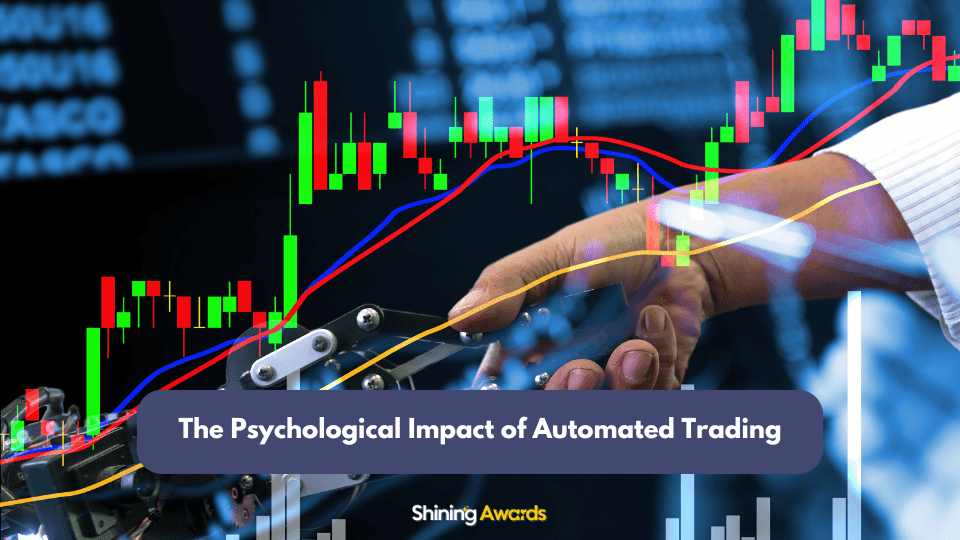The Psychological Impact of Automated Trading

Automated Trading – Trading is an emotional rollercoaster. Automated trading systems offer a way to ease this stress. By using algorithms, traders can avoid emotional pitfalls, make more rational decisions, and maintain better control over their investments. This article delves into the psychological benefits and challenges of automated trading, exploring its impact on emotions, cognitive biases, and behavioral economics. It connects traders with educational investment firms who understand the psychological effects of automated trading.
Automated Trading

Emotional Impact of Automated Trading
Automated trading can have a profound impact on a trader’s emotional well-being. One major benefit is the significant reduction in stress and anxiety. Traditional trading requires constant vigilance, quick decision-making, and the ability to handle substantial market volatility.
This environment often leads to high stress levels. Automated trading systems, however, execute trades based on pre-set algorithms, removing the need for constant monitoring and split-second decisions.
For instance, a trader might set up an algorithm to buy or sell stocks based on specific market conditions, allowing them to step back and avoid the stress of minute-by-minute trading.
Another emotional benefit is the mitigation of fear and greed, two powerful emotions that often lead to poor trading decisions. Automated systems operate without emotion, sticking to the strategy regardless of market fluctuations. This can help traders avoid impulsive decisions driven by fear of loss or the greed for higher profits.
An example of this might be an automated stop-loss order, which ensures a stock is sold if it falls below a certain price, preventing further losses without the trader’s emotional involvement.
However, there are potential downsides. Over-reliance on automated systems can lead to overconfidence.
Traders might place too much trust in their algorithms, believing they are infallible. This can be dangerous if the market behaves unpredictably, as no algorithm can guarantee success. Balancing confidence in the system with a healthy dose of skepticism is crucial.
Cognitive Biases in Automated Trading
Cognitive biases are inherent in human decision-making, often leading to suboptimal outcomes. In traditional trading, biases like confirmation bias and loss aversion are common. Confirmation bias leads traders to favor information that confirms their preconceptions, ignoring contradictory data.
Loss aversion, on the other hand, makes them more sensitive to losses than gains, often resulting in holding onto losing positions for too long.
Automated trading can help reduce these biases. Algorithms make decisions based on data and pre-defined criteria, devoid of emotional influence.
For example, an algorithm programmed to sell a stock when it hits a certain loss threshold will do so without hesitation, unlike a human trader who might hope for a rebound. This objectivity can lead to more consistent trading performance.
However, new biases can emerge with automation. One such bias is the illusion of control, where traders might believe they can influence outcomes through their algorithms more than they actually can.
This can lead to complacency and inadequate risk management. Another bias is algorithmic bias, which occurs when the data used to train the algorithm reflects existing biases, leading to skewed trading decisions. For instance, if an algorithm is trained on data from a predominantly bullish market, it may not perform well in a bearish market.
To mitigate these biases, traders should diversify their strategies and continuously monitor algorithm performance.
Regularly updating and testing algorithms with new data can help address any inherent biases.
Additionally, understanding the limitations of automated systems is crucial. Traders should complement automated strategies with their insights and remain vigilant to market changes.
Behavioral Economics and Automated Trading
Behavioral economics examines the psychological factors influencing economic decisions, offering valuable insights into automated trading. Automated systems, by nature, remove the human element, theoretically leading to more rational and predictable trading behaviors. However, understanding human behavior remains crucial.
One key insight from behavioral economics is the concept of “bounded rationality.” Traders, even with automated systems, operate within limits of information, time, and cognitive capacity.
Automated systems can process vast amounts of data quickly, but their design and programming still reflect the biases and limitations of their creators.
For example, an algorithm designed to capitalize on short-term market trends may not account for long-term shifts, reflecting a human bias towards short-term gains.
Automated trading also impacts market behavior. High-frequency trading algorithms can execute thousands of trades per second, affecting market liquidity and volatility.
This can lead to phenomena like “flash crashes,” where rapid trading causes sudden, significant market dips. Understanding these impacts can help traders design more resilient algorithms and anticipate market reactions.
Behavioral economics also highlights the importance of incentives. Automated systems follow programmed incentives, which can lead to unintended consequences.
For instance, if an algorithm is incentivized to maximize short-term profits, it may take excessive risks, leading to potential losses. Balancing incentives to align with long-term goals is crucial.
Another consideration is the psychological impact on traders themselves. Automated systems can create a sense of detachment, reducing emotional involvement and potentially leading to better decision-making.
However, this detachment can also result in reduced vigilance and oversight. Traders might become overly reliant on their systems, neglecting the need for periodic review and adjustment.
Conclusion
Automated trading can significantly reduce the emotional strain of trading. By understanding its psychological impact, traders can make informed decisions, maintain control, and trust their automated systems. While these tools offer many benefits, balancing them with human oversight ensures a more resilient and effective trading strategy.
